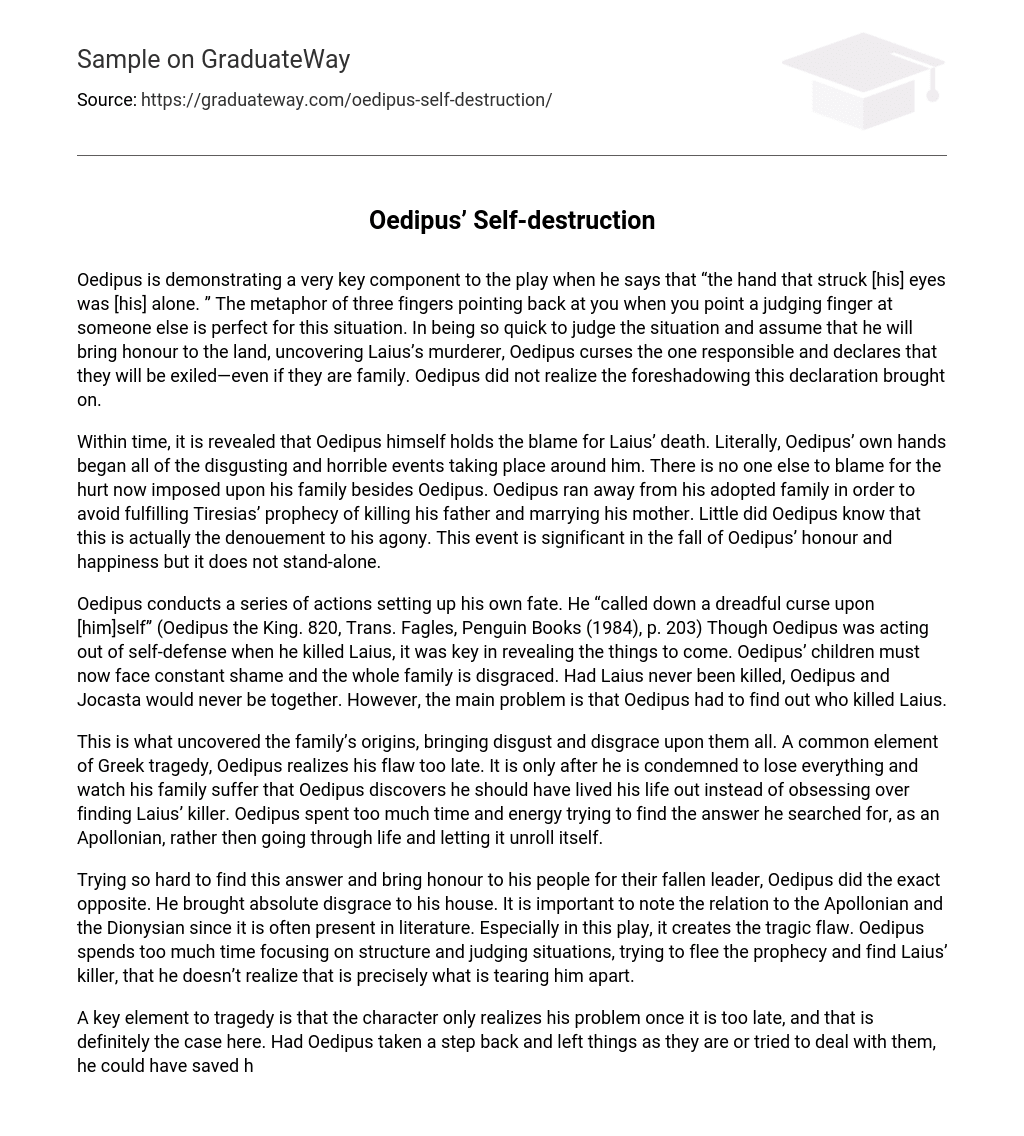Oedipus is demonstrating a very key component to the play when he says that “the hand that struck [his] eyes was [his] alone. ” The metaphor of three fingers pointing back at you when you point a judging finger at someone else is perfect for this situation. In being so quick to judge the situation and assume that he will bring honour to the land, uncovering Laius’s murderer, Oedipus curses the one responsible and declares that they will be exiled—even if they are family. Oedipus did not realize the foreshadowing this declaration brought on.
Within time, it is revealed that Oedipus himself holds the blame for Laius’ death. Literally, Oedipus’ own hands began all of the disgusting and horrible events taking place around him. There is no one else to blame for the hurt now imposed upon his family besides Oedipus. Oedipus ran away from his adopted family in order to avoid fulfilling Tiresias’ prophecy of killing his father and marrying his mother. Little did Oedipus know that this is actually the denouement to his agony. This event is significant in the fall of Oedipus’ honour and happiness but it does not stand-alone.
Oedipus conducts a series of actions setting up his own fate. He “called down a dreadful curse upon [him]self” (Oedipus the King. 820, Trans. Fagles, Penguin Books (1984), p. 203) Though Oedipus was acting out of self-defense when he killed Laius, it was key in revealing the things to come. Oedipus’ children must now face constant shame and the whole family is disgraced. Had Laius never been killed, Oedipus and Jocasta would never be together. However, the main problem is that Oedipus had to find out who killed Laius.
This is what uncovered the family’s origins, bringing disgust and disgrace upon them all. A common element of Greek tragedy, Oedipus realizes his flaw too late. It is only after he is condemned to lose everything and watch his family suffer that Oedipus discovers he should have lived his life out instead of obsessing over finding Laius’ killer. Oedipus spent too much time and energy trying to find the answer he searched for, as an Apollonian, rather then going through life and letting it unroll itself.
Trying so hard to find this answer and bring honour to his people for their fallen leader, Oedipus did the exact opposite. He brought absolute disgrace to his house. It is important to note the relation to the Apollonian and the Dionysian since it is often present in literature. Especially in this play, it creates the tragic flaw. Oedipus spends too much time focusing on structure and judging situations, trying to flee the prophecy and find Laius’ killer, that he doesn’t realize that is precisely what is tearing him apart.
A key element to tragedy is that the character only realizes his problem once it is too late, and that is definitely the case here. Had Oedipus taken a step back and left things as they are or tried to deal with them, he could have saved his family from their horror. In doing so, Oedipus also could have maintained the honour of the throne; the intention to avenge Laius’ death would have been better here then actually revealing the murderer.





